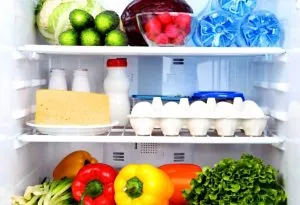How Di You Feed Boiled Egg to Baby
In this Article
- Video : When Can Babies Eat Eggs? Risks, Recommendations and More
- When Can Babies Eat Eggs?
- Nutritional Value of Eggs
- Comparing Egg Yolks & Egg Whites
- Benefits of Eggs for Infants
- How to Select Eggs
- How to Store Eggs?
- Tips for Cooking Eggs for Babies
- Delicious Egg Recipes for Your Baby
- FAQ's
Sometimes referred to as a superfood, eggs are considered by many to be the best source of proteins. It is also one of the foods that parents of newborn babies have always been sceptical about introducing to the baby's diet. If you are one of the parents who is wondering if you should introduce eggs to your baby's diet and what care you should take while doing so, this article is for you. Read on for detailed information about including eggs in your baby's diet.
Video : When Can Babies Eat Eggs? Risks, Recommendations and More
When Can Babies Eat Eggs?
Recent studies have shown that egg yolk can be safely included in the diet of babies as young as eight months of age, although egg white should only be introduced after twelve months. In some parts of the world, babies are introduced to eggs when they turn 6 months old. This is to prevent them from developing allergies towards this superfood. However, we would recommend that you check with the paediatrician for the perfect time to start feeding eggs to your baby.
Nutritional Value of Eggs
Not only is egg a prime source of the best quality proteins after human milk, but a single egg also contains thirteen essential minerals like copper, zinc, selenium, calcium, iron, cholesterol, fat, fatty acids, and vitamins like vitamin D, B12, E, choline and folate. All these nutrients are essential for the growth and well being of children. The table below has the values of the nutrients found in 1 egg (serving size 50g):
| Calories | 68 |
| Total Fat | 4.5g |
| Saturated Fat | 1.5g |
| Trans Fat | 0g |
| Cholesterol | 183mg |
| Sodium | 61.5mg |
| Total Carbohydrate | 0mg |
| Dietary Fibre | 0g |
| Total Sugars | 0g |
| Protein | 6.6g |
| Vitamin D | 0.43mcg |
| Calcium | 25mg |
| Iron | 0.9mg |
| Potassium | 69mg |
Since you will feed egg yolk first and then the egg white, let's quickly compare these two components of an egg to understand its nutritional values separately.
Comparing Egg Yolks & Egg Whites
While both the egg yolk and egg white are high in nutrients, the egg white is low in calories and does not contain carbohydrates and fats. Besides, more than half of all the nutrients found in eggs are present in the egg white. However, it is known to cause allergies, and therefore, it is recommended only to introduce the egg yolk initially.
Let's take a closer look at the egg yolks and the egg whites.
Egg White:
As mentioned above, egg whites do not contain carbohydrates and fats besides having more than half of all the nutrients found in one egg. An egg white has about four grams of proteins.
Egg Yolk:
Egg yolk contains fat, saturated fat, and cholesterol. This may worry a parent; however, a crucial fact that is often overlooked is that along with these nutrients, the yolk also contains essential fatty acids, fat-soluble vitamins and is also high in iron and calcium; all of which are needed for the development of the baby. Plus, egg yolks do not induce allergic reactions in babies. Therefore, they are highly recommended to babies while weaning them on to solid foods.
Now, let's take a look at the health benefits of eggs.
Benefits of Eggs for Infants
Eggs are also rich in minerals, vitamins and several other nutrients that are beneficial for the development and growth of infants. Here are some benefits of feeding eggs to your baby:

1. Digestion And Immunity
Eggs are rich in mineral content such as calcium, selenium, and zinc. Thus, they help in creating a robust immune system. The production of new cells in infants is significant, and eggs being rich in folate, aid and assist cell regeneration. Egg whites also assist in maintaining the right sodium and potassium content in the body. Most importantly, eggs, particularly the yolk, are easy for infants to eat and digest. Please remember that egg whites should not be given to babies under the age of one.
2. Brain Development
Egg yolks contain choline and cholesterol which are associated with brain development in infants. Cholesterol assists with the digestion of fats and also helps produce hormones as the hormone-producing glands use it up and produce the various hormones found in our bodies. Choline assists with the proper functioning of the cardiovascular and nervous systems.
3. Liver Function
The sulfur content in eggs helps in the production of keratin and collagen besides helping to absorb vitamin B12, which is crucial for the proper functioning of the liver.
4. Eye Health
Antioxidants like lutein and zeaxanthin are also found in eggs. Lutein protects the eyes from damage caused by harmful bad lights and ultraviolet light. Both antioxidants are crucial in preventing vision loss, and both are found in egg yolks.
So, now that you know the health benefits of eggs, you are probably wondering how you could go about buying them. Here are a few points you must remember while selecting and storing eggs.
How to Select Eggs
- Other than using the point mentioned above to select fresh eggs, you can also try this test to know whether the eggs are fresh or not. Take a bowl of water and gently put an egg in it. Fresh eggs will sink while the stale ones won't because eggs have an air pocket in them, and as the eggs get older, the air pocket increases, making them float.
How to Store Eggs?
Babies cannot consume all the eggs that have been purchased in a single day. It is, therefore, crucial that eggs are stored properly to keep them fresh until your baby can consume them. Here's how you can store your eggs to keep them fresh till they are consumed.

- Try to use the eggs before the stated expiry date or within seven days of purchase.
Tips for Cooking Eggs for Babies
Once your baby turns a year old, he/she can have whole eggs either boiled, fried, or scrambled. You can also add eggs to the baby's diet by adding it as an ingredient in dishes like custards, oats, mashed potatoes, etc. Do note that food products having raw eggs such as mayonnaise, homemade ice cream or baked items should not be fed to babies since their digestive systems are still developing. When it comes to cooking eggs for your baby, here are a few things you must bear in mind:
- Allow the baby time to get accustomed to the natural flavour of the egg yolk. Start small and progress slowly.
- Feed only what your baby can take. Do not force-feed.
- Do not add sugar or salt to the yolk if the baby is under one year of age.
- Half boiled eggs may contain pathogens, which your baby's immune system cannot resist as it is not fully developed. You must, therefore, feed your baby only hard-boiled eggs.

We hope your general queries about eggs and how to feed them to your baby have been addressed. How about trying some recipes now? Here are a few delicious egg recipes that you can make for your baby and provide him/her the nutrition required to grow healthy and strong.
Delicious Egg Recipes for Your Baby
Given below are a few egg recipes that are easy to cook and suitable to feed your little one.
1. Boiled Eggs
As mentioned above, babies can be served boiled eggs once they are a year or older. It is recommended to serve boiled eggs for babies without adding salt or sugar to get the baby accustomed to the flavour. But, if the baby does not like it at all, you may add a pinch of salt for taste. You may also choose to feed only the yolk to your baby.
Usually, people boil eggs for ten minutes or more continuously, which renders the egg white with poor flavour and texture and is not easy to chew. Here's a better way to cook hard boil eggs:
What You Will Need:
- 1 egg
- 2 to 3 cups of water
Method :
- Place eggs in a pan filled with water and boil them for 8 to 10 minutes.
- Peel the egg, cut into small bits and serve.
2. Scrambled Eggs
Follow these steps to make a scrambled egg for your baby. You may choose to skip this recipe for babies under one year of age, or if you haven't introduced oil in their food. Scrambled eggs can be a little heavy for the baby, so go easy when you feed this dish to your little one.
What You Will Need:
- 1 egg
- 1 tsp oil/ butter
- A pinch of salt
- A pinch of pepper (optional)
Method:
- Break an egg and empty contents in a small bowl.
- Lightly beat the egg with a fork or a whisk to break the yolk and partially mix with the white.
- Place a small frying pan on medium heat.
- When the pan becomes hot, add a teaspoon of oil/ butter and pour the slightly beaten eggs in the pan.
- Lightly whisk and scramble with a spoon till it is cooked or till it is firm.
- Serve with a pinch of salt and black pepper.
3. Egg Rice With Vegetables
This recipe is for older babies who eat normal adult foods with some variation in the number of spices. Here is how you can make egg rice for babies.
What You Will Need:
- 1 cup of cooked rice
- 1 hard-boiled egg, diced
- ¼ cups of cooked vegetables (carrots, broccoli, french beans, etc.)
- 1 tsp oil/ butter
- Salt as needed
Method:
- In a pan, heat some oil/ butter.
- Toss the cooked vegetables.
- Add cooked rice, chopped hard-boiled egg and mix.
- Add salt if needed.
4. Egg Omelette
This one is another simple way of cooking eggs for your babies. An egg omelette can be eaten with all sorts of bread or just by itself. Again, this dish is more suitable for older babies who have been introduced to each ingredient in the recipe.
What You Will Need:
- 1 egg
- Salt as per taste
- A pinch of pepper (optional)
- 2 tsp oil/ butter

Method:
- Beat an egg, add salt and pepper and whisk well.
- Pour oil/ butter into a hot frying pan and add the omelette mix.
- Allow it to sit and cook on both sides for 20 to 30 seconds each.
Here are some frequently asked questions that can help you handle certain situations while feeding eggs to your little one.
FAQ's
1. Which part of the egg could be allergic to babies?
The white part of the egg contains four proteins which could cause an allergic reaction in babies. An allergic reaction from egg yolk is extremely rare. It is to be noted, however, that several scientific studies have concluded that by the time children are five years old they overcome allergies to eggs.
2. Can you feed eggs to your baby every day?
Yes, children can be fed eggs every day. However, the number of eggs you can feed your baby depends on the age and the diet that is followed for the baby. It is advisable that you do not exceed that number per day. You may check with the paediatrician/dietician for the number of eggs you can feed your baby.
3. How many egg yolks can you give an 8-month-old baby?
It is advisable that a child, eight months of age should be fed only one egg yolk per day.
4. Can you give soft boiled/runny yolks to your baby?
It is not recommended to feed soft runny yolks to children, as the egg yolk may contain bacteria called Salmonella Enteritidis, which could cause infections in children. Salmonella Enteritidis is destroyed when eggs are completely cooked. Soft runny yolks of soft boiled eggs are not cooked; they are simply warmed, and that is not sufficient to kill the bacteria Salmonella Enteritidis. To check for infections, one must be aware of the symptoms of Salmonella. An infected person will get diarrhoea, fever and abdominal cramps with the symptoms lasting from four to seven days.
Besides the fear and apprehension felt by most parents before introducing eggs in the diet of their babies, it is, by and large, considered safe to offer them once they are about one year old. As discussed, if certain precautions are taken, eggs are not only safe but also beneficial for your baby.
References and Resources: Healthline
Also Read:A Guide to Baby Allergies & How to Handle Them
Source: https://parenting.firstcry.com/articles/egg-for-baby-benefits-and-recipes/

Post a Comment for "How Di You Feed Boiled Egg to Baby"